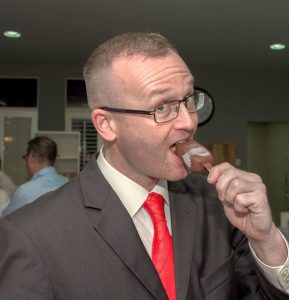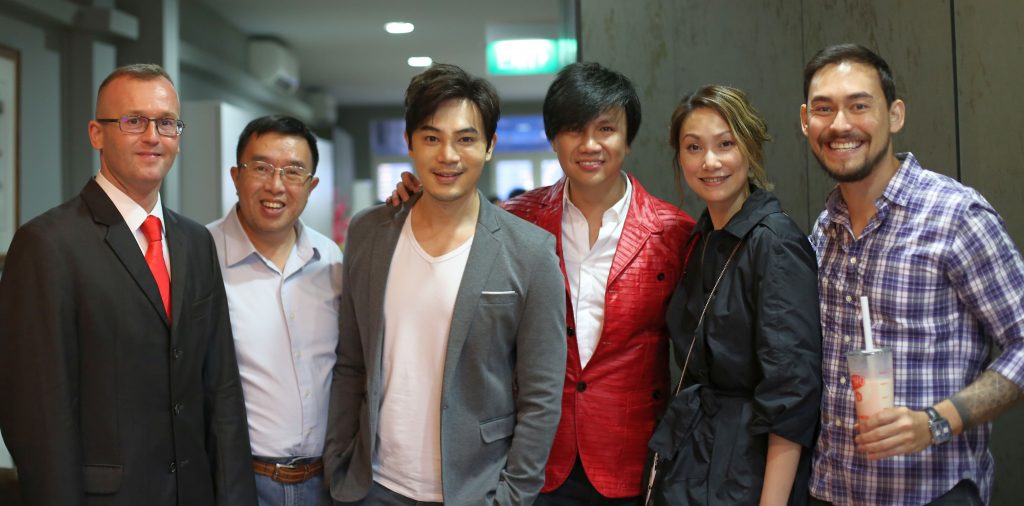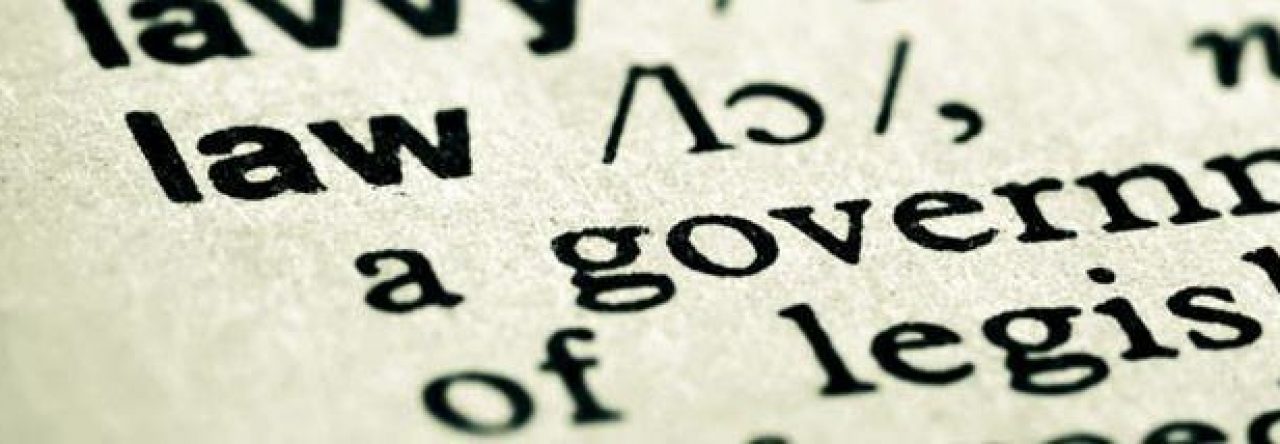Last Friday we were celebrating the official opening of our new office, arts and entertainment law firm that we are. This is the speech I gave before the party took off.

Hello everybody.
Welcome to our little office warming party. We are grateful to have you here as our guests.
We are going to meet many artists today. Writer Mahita Vas is here with us already.
Many of you are active in other parts of the arts and entertainment industry. Whatever it is, when you do what you do the law may not come to your minds first thing. Yet you have joined us today to warm our new office premises.
For which thanks. We do not take this for granted.
Definitions
They call us an arts and entertainment law firm.
As lawyers, we work with definitions. You need definitions to apply an abstract legal theory to help solve a specific problem. That’s what we do.
We prefer our definitions to be watertight. For example, what’s a person? What’s a month? What’s reasonable or what’s an immediate family member?
It makes us feel giddy when a definition isn’t watertight, and we will look for a better one. Sometimes we may have to phrase one by ourselves, hoping it will get accepted.
We lawyers feel the need to describe things in precise terms.
The arts though.
Art Undefined
There’s no definition of art in Singapore law. In fact art is barely mentioned in Singapore law or in Singapore legal literature.
No definition and not even much of a narrative. To a lawyer this does not bode well.
There is one occurrence of the word arts in the Constitution of Singapore. It’s way back in the Fourth Schedule as one of many criteria for selecting nominated members of parliament, where it reads:
The persons to be nominated shall be persons who have rendered distinguished public service, or who have brought honour to the Republic, or who have distinguished themselves in the field of arts and letters, culture, the sciences, business, industry, the professions, social or community service or the labour movement…
In other words: the arts are given a very auxiliary function in the Constitution. This function is minimal. It doesn’t seem to necessitate a definition of art.
There is one more occurrence of the word arts in ordinary statute: the National Arts Council Act. This act establishes the National Arts Council, a body to promote the arts in Singapore, to promote the arts of Singapore overseas, and to advise the Government on the promotion of art.
Surely an act which does all that contains a definition of art?
A bit a bit only. It stipulates, and I quote: ‘“The arts” includes literary, performing and visual arts.’ Unquote. That’s it.
And that’s really it. There is no further mention, let alone definition of art anywhere in statutory Singapore law, apart from the context of martial arts or licencing requirements under the Public Entertainments Act. Court decisions: also nothing.
Relevance

I said, to a lawyer this does not bode well. But why would this be a problem?
Does it not lie in the nature of the arts to defy easy description and therefore definition? Because the arts are supposed to be in a flow of continuous development always, whereas a lawyer’s definition, even a broad one, is by its very nature static?
All true.
But remember when at the beginning I mentioned why a lawyer needs her definitions. It’s so she can apply abstract legal theories to help solve specific problems.
Definitions are a lawyer’s tools. More often than not, they embody rights.
We lack a major tool for dealing with the legal aspects of art. And the question is, why?
Experience shows you’ll find a well-provided lawyer toolbox, a multitude of definitions, or a history of evolving definitions, or dispute over definitions for a matter, or at least a lot of talk about a matter only where this matter is one thing: relevant.
This is why the National Arts Council Act contains some kind of sub-definition of the arts. It was relevant to clarify – whatever else the arts may be – that for sure the National Arts Council is to promote literary, performing and visual arts.
Irrelevance
What does this tell us about the almost total absence of the arts in the Constitution?
Certainly the organisation of a body politic is constitutionally relevant. And indeed the Constitution has provisions on our government bodies, how they get elected, or selected, and what their functions and powers are. This is where we find mention of the arts in the Constitution, as a small tool, for selecting nominated members of parliament.
Other things of constitutional relevance are the fundamental liberties which people ought to have, such as liberty of the person, the prohibition of slavery, equality before the law, or the freedom of speech and expression, among others.
The Constitution lays down these fundamental liberties, but the freedom of the arts is not one of them.
There’s freedom of expression, though, which is not restricted to verbal expression. Means every Singaporean artist has the fundamental liberty to express himself through his art.

But Kunstfreiheit, as the freedom of the arts is called in German, encompasses more than a right to speak through art. The freedom of the arts is also the freedom of publishers, producers, art galleries, record labels or art colleges.
Our Constitution does not award this degree of freedom of the arts to them.
Priorities of the Past
We can’t blame her original authors, though. When Singapore gained independence and the Constitution was cobbled together, the circumstances were not like that.
Political uncertainty, an immature economic infrastructure, housing shortage, high unemployment and poverty asked for a no-frills government before anything else. Setting the republic on her feet, ensuring her survival and then her development and economic prosperity – these were considered the priorities. Not the arts. The Constitution reflects that. The non-thematisation of art in the media at the time reflects that. Art even being some kind of non-word at times reflects that.
The situation reminds me of Berthold Brecht’s Threepenny Opera. There’s a song in it called ‘What Keeps Mankind Alive?’ One line in this song goes ‘Let’s have the grub first, then the morality’. Put another way, bread first, then ethics. Health first, then the arts.
But that was then.
Beyond the Grub
They say freedom stands on the shoulders of security. So yeah, let’s never forget about the prerequisites for the public security we are enjoying today. But if we’re mindful of that, does it mean we can’t be mindful of anything else?
But aren’t we standing on the shoulders of security today? I daresay on the whole we are blessed with more prosperity and stability than ever before. Doesn’t the relative comfort of our lives allow us to look beyond the grub that keeps our bodies alive and look at the morality if you will – and at the arts that feed our spirits? In other words, don’t we have more than enough bread and aren’t we healthy enough to turn to art now?
Indeed Singapore society, including Government, has begun to do that. Arguably, today the arts do have a better standing than in the past. The media have begun to reflect that. Art no longer being a non-word has begun to reflect that.
My point is, Singapore law doesn’t reflect that. Elsewhere there’s movement in the right direction, but we lawyers are still missing some tools.
As a consequence, we are ill-equipped to help artists solve their specific problems.
It’s relatively easy for a lawyer to help business people with their needs. This part of the toolbox is full to the brim. It’s harder for a lawyer to argue in favour of an artist, for example if the National Arts Council should deny taxpayer money to projects which it considers critical of the Government.
It’s also harder to argue whether an act in public is an act of vandalism or art. Or an act of vandalism and art. Or, not an act of vandalism at all, but art.
Maybe we’re just not there yet?
Generations
Nineteenth-century German chancellor Otto von Bismarck said:
The first generation earns the money, the second manages the wealth, the third studies history of art, and the fourth degenerates completely.
He was an arch-conservative man. But a clever man nonetheless, so perhaps his wisdom and witticisms carry some weight.
When he said that he was referring to the cycle of wealth and poverty. But if we apply this aphorism to our development as a nation, it might help us realise that, as a society, we may not be the third generation yet, the ones who devote themselves to art (entirely, as Bismarck feared).
Perhaps we are the late second generation, managing the wealth which the pioneer generation has created.
If this is true to some extent, then it means we’re here to set the scene for the third generation, no?
Ya ya, of course, in doing so, beware of the fourth generation.
If we are still the second generation, not the third, then obviously this doesn’t mean there aren’t any artists around at all. But it may mean you, the artists of today, will have to lay even more groundwork setting the scene for the future. You’re the quintessential avant-garde.
Raising Our Voices
To us lawyers this doesn’t mean we can make our own tools. The legislator, not the handyman, is the toolmaker.
But this toolmaker has ears to hear. And you know what it’s like. It’s easy to look away. But not to listen is difficult.
And this is our chance to start talking a lot about the arts and everything that goes with it, and to add them to the vocabulary of our Legalese. This is how it works in the business world and the legal terms there, and the rights which originate from these terms, so why shouldn’t it work with the arts as well?
This is a part we, the lawyers, can play. It could help create a narrative, influence the making of definitions, and eventually help increase the legal status of the arts in Singapore.
We shall play our part.

Leave a Reply